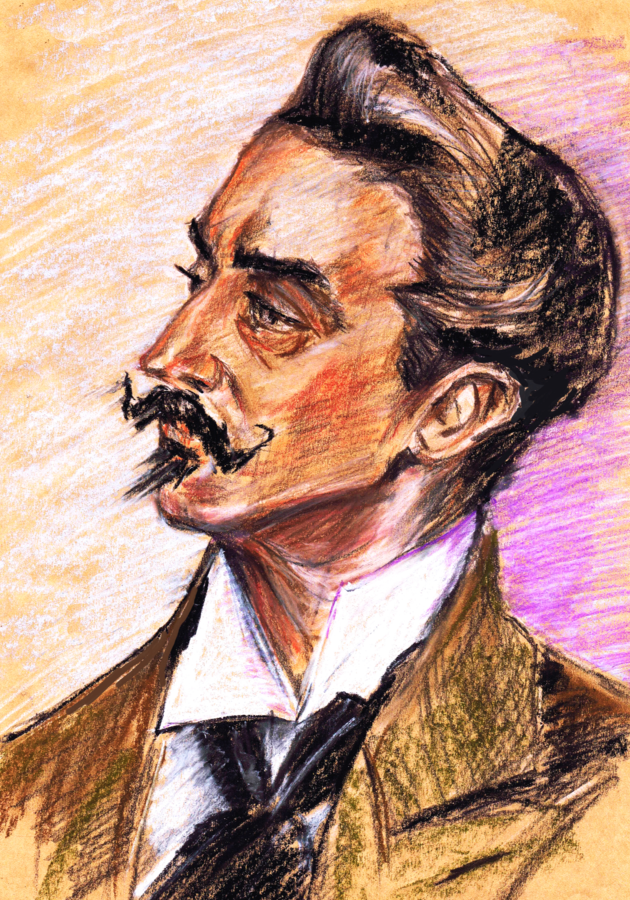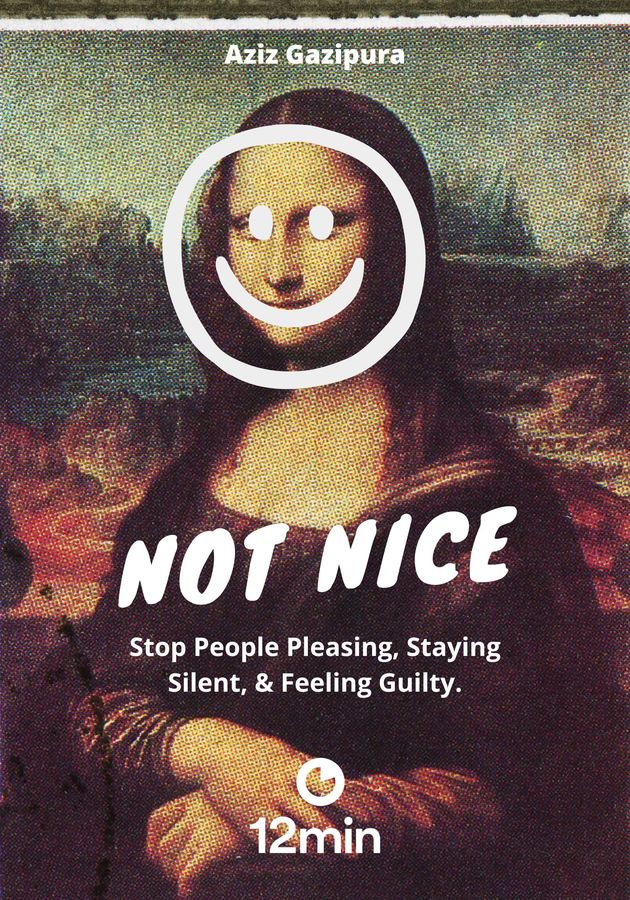What would you do if the world ended?
The Parisian paper popular in the 1920s called “L’Intransigeant’’ was famous for investigative news, metropolitan gossip, comprehensive classifieds, and incisive editorials. It also had a section that included celebrities’ answers to big questions, such as: “What do you think would be the ideal education to give your daughter?” or: “Do you have any recommendations for improving traffic congestion in Paris?” In the summer of 1922, “L’Intransigeant’’ asked its contributors to think about a disturbing topic—the end of the world. If scientists announced the world was ending, how would people behave in the hours preceding the cataclysm? The magazine also asked celebrities how they would occupy themselves in their last hours.
Henri Bordeaux, renowned French writer and respected lawyer, assumed the knowledge of the world ending would drive people either to the nearest church or the nearest bedroom. As for himself, Bordeaux thought the last thing he would do would be admiring the alpine landscape. Another writer, Henri Robert, said he would devote himself to a final game of bridge, tennis, and golf. When asked about his pre-apocalypse plans, Marcel Proust said they would include visiting the Louvre, traveling to India, and throwing himself “at the feet of Miss X.’’
Unfortunately, a few months after sending his answer to the magazine, the great novelist died unexpectedly from a cold when he was 51. As he did not anticipate his end, he did not visit a museum, travel to India, or enjoy the company of a woman before he died. In fact, although he claimed he would do these three things before the apocalypse, in his real life, Proust had never been an avid museum visitor nor a traveler to India—or elsewhere. He was known for spending days in his bed—he even wrote a substantial number of pages of his novel “In Search of Lost Time’’ in it. As far as Miss X is concerned, de Botton says the writer appreciated a glass of well-chilled beer to lovemaking.
The bottom line? We should not wait for the announcement of an imminent apocalypse to stop wasting our time and start appreciating life. In other words, determine your priorities and act on them before you find yourself at the end of your life, searching for all the time you have lost.
How books can change our lives
Marcel’s father, Adrien Proust, was a “doctor of international standing.’’ After graduating from medical school, Dr. Proust had one goal in mind: to improve public sanitation standards. He concentrated his efforts on stopping the spread of cholera and the bubonic plague—and was, therefore, awarded the title of Chevalier de la Légion d’honneur and a professor of hygiene at the Medical Faculty in Paris. Moreover, the mayor of the once cholera-prone port of Toulon gave him the keys to the city, and Marseilles named a hospital for quarantined victims after him.
It is not easy for a child to grow up beside a successful father, especially when his professional aspirations are not in line with his parents' expectations. Although he did not wish to follow in his father’s footsteps, Marcel dreamed of taking his father’s role of helping people. “Ah, Céleste,” he told his servant, “if I could be sure of doing with my books as much as my father did for the sick.” Could Marcel be considered insane for thinking novels offer relief from pain—if not physical, at least emotional?
According to Proust, reading allows us to recognize someone we know in a fictional character, no matter whether they belong to the Homeric era or our present. This connection erases boundaries existing between distant periods and places, “expanding the range of places in which we feel at home.’’ Furthermore, books can console us in times of suffering. For instance, the following words by Proust’s narrator may comfort a person left by a lover who kindly said they need to spend more time on their own: “When two people part it is the one who is not in love who makes the tender speeches.’’
Finally, by describing phenomena far better than we can, novels help us understand ourselves better. As Proust writes, “If we read the new masterpiece of a man of genius, we are delighted to find in it those reflections of ours that we despised, joys and sorrows which we had repressed, a whole world of feeling we had scorned, and whose value the book in which we discover them suddenly teaches us.’’
Reading a train timetable before bedtime
Proust’s friend Maurice Duplay said Proust often used to read a train timetable when he could not fall asleep. Train timetable? The list of cities with times of departure? How could that make someone sleepy? Proust did not search for particular information in the timetable. “Rather,’’ de Botton writes, “this timetable was read and enjoyed as though it were a gripping novel about country life, because the mere names of provincial train stations provided Proust’s imagination with enough material to elaborate entire worlds, to picture domestic dramas in rural villages, shenanigans in local government, and life out in the fields.’’
A little information—written on a train timetable, in a newspaper, or even a soap advertisement can be a starting point for deep thoughts that can occupy our mind for hours. As a writer, Proust believed that subject matter itself does not contribute to the greatness of art as much as the subsequent treatment of that matter. In fact, he did, on one occasion, claim that the soap advertisement could be as significant as Pascal’s Pensées—not because of the content it provides, but because it can trigger thoughts “which might end up being no less profound than those already well-expressed, already well developed in the Pensées,’’ de Botton explains.
For this reason, to readers who look for content rich in facts, Proust’s “In Search of Lost Time’’ might seem repellent. For instance, after reading the manuscript of this novel, Alfred Humblot, a head of the esteemed publishing house Ollendorf, commented on Proust’s style in a letter to his friend by saying: “My dear friend, I may be dense, but I fail to see why a chap needs thirty pages to describe how he tosses and turns in bed before falling asleep.” Jacques Madeleine, a reader for the publishing house Fasquelle, shared Humbolt’s bewilderment after he finished reading “In Search of Lost Time.’’ He reported, “At the end of seven hundred and twelve pages of this manuscript (...) one doesn’t have a single, but not a single clue of what this is about.’’
In case you haven’t read Proust's monumental novel “In Search of Lost Time,’’ try doing it and remember—do not look for facts, but rather what they produced in the writer's imagination. At the same time, let your imagination run free while reading—you might be surprised to see what kind of places it can take you to.
The Mediterranean is not “the Big Blue’’
“There may be significant things to learn about people by looking at what annoys them most,’’ de Botton writes. What can Proust’s annoyances tell us about him? His friend, Lucien Daudet, says Proust was particularly annoyed when someone used English expressions when speaking French since they thought it was chic. In those cases, Daudet says Proust “would make the kind of pained, irritated grimace which follows when a stick of chalk has been scraped across a blackboard.’’ He was also frustrated with people who referred to the Mediterranean as “the Big Blue,” to England as “Albion,” and to the French army as “our boys.’’
De Botton believes Proust was not fond of these cliche phrases because they constrained one’s originality and failed to describe a particular phenomenon adequately. The thing is, when we try to use our own language to describe a particular situation, we “convey with greater accuracy the distinctive timbre of our thought.’’ Furthermore, by constantly using fixed phrases to explain the world around us, we disregard its diversity. If you, for example, regularly describe a sunset as ''shiny'' or the moon as ''discreet,'' you imply that every single sunset or moonshine is the same, when that actually is not the truth. Moreover, the way you speak reflects the way you experience things. Hence, if you express thoughts and emotions poorly, you leave the impression that your image of reality is one-dimensional.
Proust paid much attention to language because he believed “every writer is obliged to create his own language, as every violinist is obliged to create his own tone.” For this reason, for instance, Proust did not describe the moon as discrete in the first volume of “In Search of Lost Time,’’ but compared it with an actress who watches her company on stage hidden behind the curtains before she comes out to join them. Unique metaphor—isn’t it?
“Life can be a stranger substance than cliche life,’’ de Botton writes. Therefore, avoid cliches and occasionally do things differently from the people around you—you will be surprised by the unknown aspect of reality you might reveal then.
Proust as a friend
Was Marcel Proust a good friend? The accounts published by some of his friends after his death show he certainly was. Most of them emphasized his generosity. Some said they would remember Marcel for being a patient listener. Georges de Lauris, for instance, wrote, “He took an interest in you, instead of trying to make you interested in himself.” Gabriel de la Rochefoucauld wrote the writer's gestures towards friends were a “testimony of kindness,’’ and “goodwill.’’ Anna de Noailles, on the other hand, admired his modesty.
After hearing these words of praise, it is surprising to learn that Proust's conception of friendship was quite unusual. On one occasion, he wrote, “The artist who gives up an hour of work for an hour of conversation with a friend knows that he is sacrificing a reality for something that does not exist.’’ He also claimed, “Conversation, which is friendship’s mode of expression, is a superficial digression which gives us nothing worth acquiring.’’ Yet, he devoted hours conversing and listening to his friends. Was he sincere with them? The evidence implies he was not. While supporting and praising them in letters he sent them, he criticized and mocked them through fictional characters in “In Search of Lost Time.’’
De Botton believes Proust spoke poorly of conversations with friends, not because he condemned them personally, but because he doubted that everyday language alone could precisely express our deepest selves. On the flip side, the reason behind his insincerity towards them was his concern he would lose their affection if he told them something they did not like. As de Botton explains, Proust did not consider “the pursuit of affection’’ and “the pursuit of truth’’ compatible with friendship. Perhaps we should sometimes adopt this approach as well, and separate a letter we send our friends from the one that “stays hidden but nevertheless needs to be written,’’ don’t you think?
Final Notes
With the existence of Wikipedia and numerous other online sources that present the essentials from a famous person’s life in a few hundred words, we could say the biography genre, unfortunately, finds fewer and fewer readers each year. Nevertheless, since it presented Proust’s life in an unconventional way, in a form contemporary readers perhaps appreciate the most, we are sure de Botton’s book will not lose but gain more readers over time. All in all, “How Proust Can Change Your Life’’ is an extremely informative, absorbing, and delightful piece!
12min Tip
Check out de Botton's youtube channel called “The School of Life.’’ It contains a 9-minute-long informative video that perfectly sums up Proust’s life and work.





























